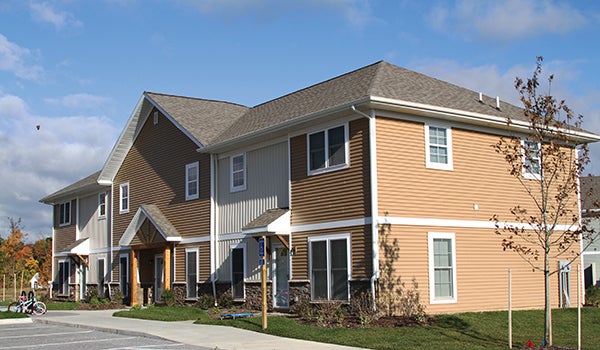Pokagon Band awarded Indian Housing Block Grant
Published 7:08 am Saturday, March 13, 2021
|
Getting your Trinity Audio player ready...
|
DOWAGIAC — Thanks to a recently awarded grant, one local Native American tribe is taking steps to help grow and maintain its housing and community development programs.
The Pokagon Band of Potawatomi Indians will be receiving $2.1 million from the U.S. Department of Housing & Urban Development for affordable housing activities in their tribal communities.
The funds are administered through HUD’s Indian Housing Block Grant Program, a formula grant that provides a range of affordable housing activities on Indian reservations and Indian areas. The program also looks at factors including the size of the service area, Native American populations within the service area and Pokagon Band citizen numbers in the service area. Funds can only be used in the Band’s 10-county service area.
“Each year, all tribes in the US are eligible for HUD funds for the grant,” Coleman said. “Each year we receive roughly 2 million from the program, which will help us cover the cost of our housing operation as well as the costs of our assistance programs.”
The funding will be put to good use by Jim Coleman, the Pokagon Band’s director of housing & community development.
Coleman is responsible for overseeing the tribe’s housing operation, which consists of more than 80 rental units and 48 self-storage units. He also manages several programs for the tribe, including rental assistance, down payment assistance, rehab assistance and more.
On the community development side, Coleman’s staff promotes tribal development while expanding the tribe’s ability to exercise its sovereign rights through planning, analysis, recording and implementation of different projects. He oversees the travel planner, Geographic Information Service specialists, building inspections and property management.
Overseeing the department is a lot of work, but Coleman lives to help others. Lending a hand to those in need makes his job
fulfilling.
“It’s very rewarding to be able to help people, especially in their time of need,” he said. “I get calls from people who are homeless and a lot of times there’s anxiety with being homeless. We’re able to help a lot of citizens, which is rewarding to myself and my team.”
Coleman also handles four COVID-related programs this year, assisting with job loss, infections and more.
“We manage three housing villages,” Coleman said. “Our goal is to keep those 80 families safe.”
When the rental units require maintenance, Coleman and his team take every precaution in order to keep tenants safe.
“We screen everyone daily for COVID,” he said. “Tenants are screened before maintenance responds and contractors are screened before coming onto Pokagon land. We’re maintaining social distance. The process makes it a little more complicated but we haven’t had any employee cases in our housing team and minimal cases in our housing villages.”
The housing and community development departments have been working mostly remote since the onset of the pandemic but have continued to provide every service they offered prior to COVID. Coleman said the Band has transitioned from face-to-face to digital assistance. While that transition has been a stark change from the norm, Coleman said the change to remote work has helped in some cases.
“We’ve been able to go paperless and maximize our time,” he said. “Employees are more efficient. It’s been working for us.”
The Pokagon Band has taken additional steps to ensure the safety of its citizens, including the approval of its COVID-19 Video Doorbell Program, which provides reimbursement for the purchase of video doorbells by Pokagon Band citizens whose households include at least one person who is potentially at increased risk of severe illness from COVID-19.
“It allows citizens to have a two-way conversation without opening the door,” Coleman said. “We have it professionally installed within a one to two-week period of ordering. It has been great for our elders, who are able to see who’s at the door from the comfort of their living rooms.”
Coleman is thankful for the work of his teams, many of which have been working with him for more than 10 years. He continues to look for ways to help as many citizens as he can.
“Managing 80 rental units is challenging at times,” he said. “Even so, we want to grow even further. We’re still in growth mode; it all boils down to funding. If we want to help every citizen, we must continue to grow and improve.”







